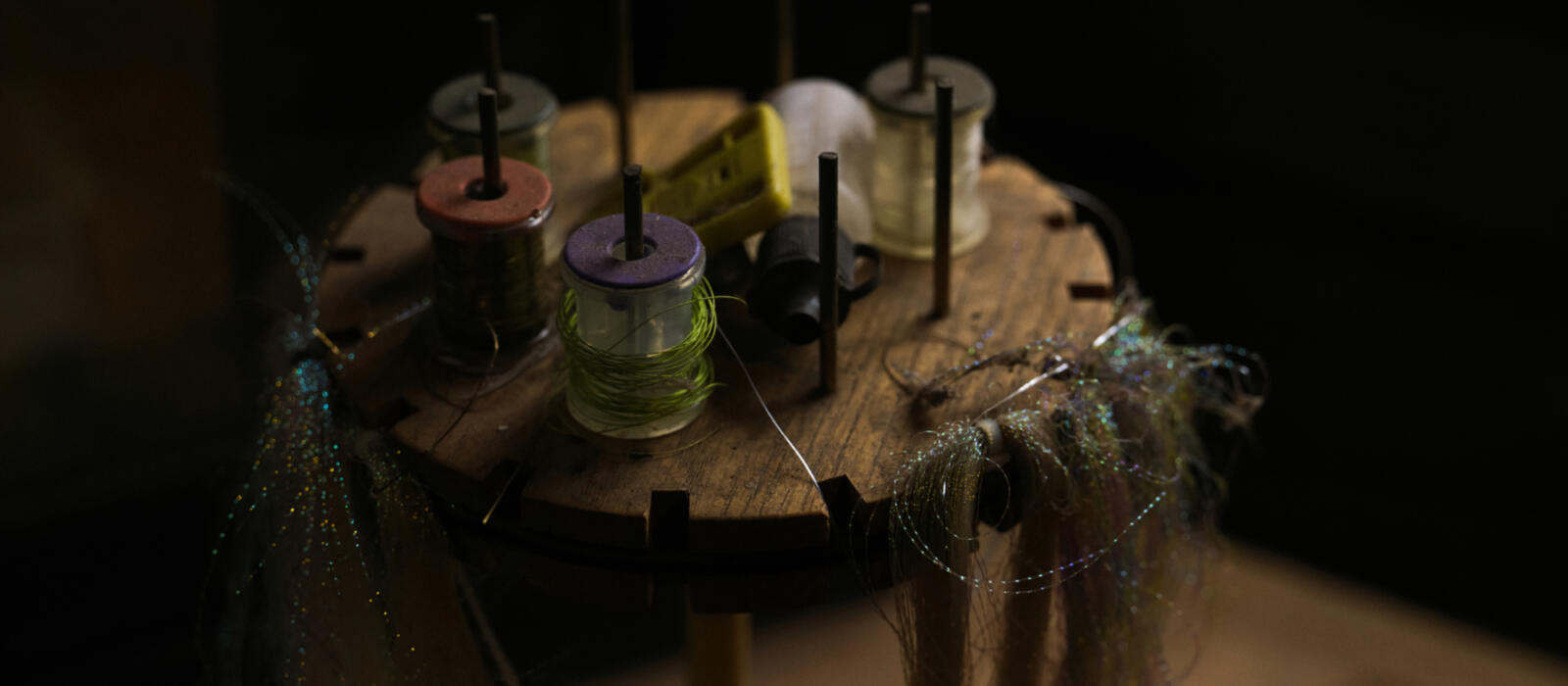Story
Tied to the Vise

With the fishing season slowing down, it gives us guides an opportunity to reflect on the season and spend time sitting in front of the vise. Fly tying is an aspect of the sport that not all anglers get involved with, but it becomes a hobby itself for those that do. Clamping a hook in the vise, we carefully craft small bugs to replicate the forage of our beloved trout, crayfish and minnow patterns for ferocious smallmouth, or lash loads of bucktail, feathers and flash to articulated monstrosities for predators like musky. Being an integral piece of the sport, fly tying has provided me with a cathartic release, an innovative outlet, and it is fundamental to my overall process as an angler.
In recent years, every fly fishing publication and blog has promoted fly tying as a practice of mindfulness – I completely agree! My tying desk is a place where I can cut myself off from distractions, directing all of my focus to the precision of thread wraps, fusing intently placed materials around the hook. Fixing a cocktail, putting on some music, and cranking out a few flies is a great reset button after getting the kids to bed. It has also given me a community of afflicted anglers, and our tying get togethers consist more of rants and fellowship where we can share new ideas or struggles. The calmness it provides and the relationships gained through our shared fixation has been invaluable.
There is a sense of satisfaction from catching fish on a fly you crafted yourself, and I still remember my first trout caught with a horrendously disproportioned pheasant tail nymph. It might have been one of the ugliest bugs ever, but it marked an accomplishment that won’t ever be forgotten. From that point on, I honed my skills in order to proficiently tie all of my own flies. Mimicking the food base, for whatever your quarry may be, is paramount to achieving the goal, and this is attained through trial and error at the vise. Even now, I’m always looking for new techniques or materials to make improvements. Constant evolution and endless opportunities to gain knowledge prevent things from becoming stale and drive the advancement of my skillsets as an angler.
Fly fishing is very much a process-oriented pastime, and for me, it begins and ends at the vise. Without tying my own flies as the foundation, I feel as I’ve skipped the most important step. Tying flies allows me to clear my head, which benefits not only my mental health but also the fish catching abilities of my flies. Observing what the days on the water give you, while simultaneously evaluating your performance, is a skill that goes beyond the simple act of fishing. Attention to every single detail is what separates great guides and anglers from the herd, and it all starts with the flies.
– Bryan Begbie, Fly Fishing Manager
